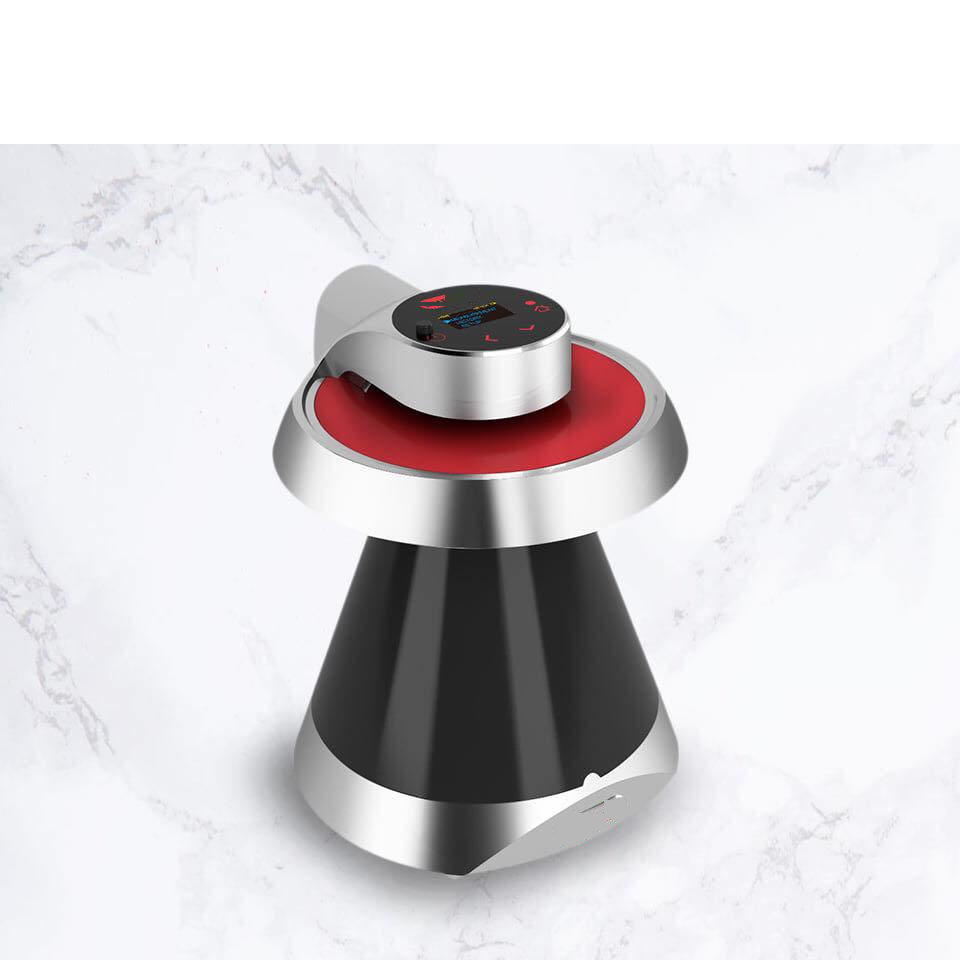HOW TO START A COFFEE ROASTING BUSINESS
Start a coffee roasting business by following these 10 steps:
You have found the perfect business idea, and now you are ready to take the next step. There is more to starting a business than just registering it with the state. We have put together this simple guide to starting your coffee roasting business. These steps will ensure that your new business is well planned out, registered properly and legally compliant.
A clear plan is essential for success as an entrepreneur. It will help you map out the specifics of your business and discover some unknowns. A few important topics to consider are:
- What are the startup and ongoing costs?
- Who is your target market?
- How much can you charge customers?
- What will you name your business?
Luckily we have done a lot of this research for you.
What are the costs involved in opening a coffee roasting business?
The startup costs associated with opening a coffee roasting business are significant. In addition to commercial space, business owners must also purchase:
- A coffee roaster, which can cost up to $25,000 or more
- Green coffee, which usually costs ~$3.00 to $4.50 per pound but is bought in large bags (e.g. 50-kilogram (110-pound) sacks)
- Packaging supplies (a few cents per bag or box)
- A POS system
- Labels (a few cents each)
- A heat sealer, which may cost anywhere from $30 to $300 or more
- A coffee grinder, which might cost between $500 and $1,000
Businesses will also need a computer and internet access to accept orders, and a vehicle to make deliveries.
There are two ways that business owners who have limited capital can significantly reduce their startup costs.
First, business owners can “contract roast.” In contract roasting, a business pays a rental fee to use a more established roaster’s facilities. The roaster of the established company may also be involved in the roasting process. The roasted coffee is sold under the renting roaster’s brand, regardless of whether another roaster is involved. This solution not only greatly reduces startup expenses, as there’s no need to purchase a roaster, heat sealer or coffee grinder, and it lets inexperienced business owners lean on the expertise of more experienced roasters.
Alternatively, roasters can start with lower-priced equipment. Driftaway Coffee is an established commercial roaster that roasted its first commercial batches with a Behmor 1600 -- a roaster that’s marketed to hobbyists and typically sells for far less than $1,000. Businesses can also purchase less-expensive grinders and heat sealers.
What are the ongoing expenses for a coffee roasting business?
The ongoing expenses for a coffee roasting business include:
- Purchasing green coffee
- Purchasing fuel for the roaster (which may use propane, natural gas, electricity or another fuel source)
- Buying packaging supplies
- Rent and utility costs
- POS System monthly/annual fee
- Employees’ wages
- Shipping and delivery costs
- Equipment service calls
Who is the target market?
A coffee roasting business’ ideal customer is a business that sells a lot of specialty coffee. Coffee shops, certain grocery stores and a few boutiques may go through a lot of coffee. While these types of wholesale customers won’t pay as much as individuals who pay retail prices, wholesale customers provide a more stable income stream.
How does a coffee roasting business make money?
A coffee roasting business makes money by selling roasted coffee to individuals (retail) and businesses (wholesale).
How much can you charge customers?
Retail prices for roasted coffee are often between $12 and $20 for 12-ounce bags. Wholesale prices are often $6 to $12 per pound. The quality of coffee is one of the main factors that determine where within these ranges a roaster’s prices fall. (A few roasters have prices outside of these ranges.)
Lots of roasters offer retail bags in sizes other than 12 ounces, but most roasters use 12-ounce bags as their main retail package. They do this because about 25 percent of green coffee’s weight is lost in the roasting process, so 1 pound of green coffee becomes approximately 12 ounces of roasted coffee. Prices can be varied based on the reports generated by the POS system. If there is a significant demand for a product, the price may be increased.
How much profit can a coffee roasting business make?
A coffee roasting business’ profit potential depends on how many outlets into which it can get its coffee. A roaster that has coffee in lots of retail locations may earn hundreds of thousands of dollars, or more, each year. However, many don’t make quite this much, but bring in closer to tens of thousands of dollars annually.
How can you make your business more profitable?
A coffee roasting business can increase its coffee sales and add additional revenue streams by opening up its own coffee shops.
What will you name your business?
Choosing the right name is important and challenging. If you don’t already have a name in mind, visit our How to Name a Business guide or get help brainstorming a name with our Coffee Roasting Business Name Generator
If you operate a sole proprietorship, you might want to operate under a business name other than your own name. Visit our DBA guide to learn more.
When registering a business name, we recommend researching your business name by checking:
- Your state's business records
- Federal and state trademark records
- Social media platforms
- Web domain availability.
It's very important to secure your domain name before someone else does.
STEP 2: Form a legal entity
The most common business structure types are the sole proprietorship, partnership, limited liability company (LLC), and corporation.
Establishing a legal business entity such as an LLC or corporation protects you from being held personally liable if your coffee roasting business is sued.
You can start an LLC yourself and pay only the minimal state LLC costs or hire one of the Best LLC Services for a small, additional fee.
Recommended: You will need to elect a registered agent for your LLC. LLC formation packages usually include a free year of registered agent services. You can choose to hire a registered agent or act as your own.
STEP 3: Register for taxes
You will need to register for a variety of state and federal taxes before you can open for business.
In order to register for taxes you will need to apply for an EIN. It's really easy and free!
You can acquire your EIN for free through the IRS website, via fax, or by mail. If you would like to learn more about EINs and how they can benefit your LLC, read our article, What is an EIN?.
Learn how to get an EIN in our What is an EIN guide or find your existing EIN using our EIN lookup guide.
Small Business Taxes
Depending on which business structure you choose, you might have different options for how your business will be taxed. For example, some LLCs could benefit from being taxed as an S corporation (S corp).
You can learn more about small business taxes in these guides:
There are specific state taxes that might apply to your business. Learn more about state sales tax and franchise taxes in our state sales tax guides.
STEP 4: Open a business bank account & credit card
Using dedicated business banking and credit accounts is essential for personal asset protection.
When your personal and business accounts are mixed, your personal assets (your home, car, and other valuables) are at risk in the event your business is sued. In business law, this is referred to as piercing your corporate veil.
Additionally, learning how to build business credit can help you get credit cards and other financing in your business's name (instead of yours), better interest rates, higher lines of credit, and more.
Open a business bank account
- This separates your personal assets from your company's assets, which is necessary for personal asset protection.
- It also makes accounting and tax filing easier.
Recommended: Read our Best Banks for Small Business review to find the best national bank, credit union, business-loan friendly banks, one with many brick-and-mortar locations, and more.
Open net-30 accounts
When it comes to establishing your business credit, net-30 vendors are considered the way to go. The term "net-30," which is popular among vendors, refers to a business credit arrangement where the company pays the vendor within 30 days of receiving goods or services.
Net-30 credit terms are often used for businesses that need to obtain inventory quickly but do not have the cash on hand.
Besides establishing business relationships with vendors, net-30 credit accounts get reported to the major business credit bureaus (Dun & Bradstreet, Experian Business, and Equifax Business Credit). This is how businesses build business credit so they can qualify for credit cards and other lines of credit.
Recommended: Read our guide on the best net-30 vendors so you can start building business credit now, so you never have to worry about cash flow in the future. Keep in mind that poor cash flow is the #1 reason businesses fail!
Get a business credit card
- This helps you separate personal and business expenses by putting your business' expenses all in one place.
- It also builds your company's credit history, which can be useful to raise money and investment later on.
Recommended: Read our guide to find the best small business credit cards.
STEP 5: Set up business accounting
Recording your various expenses and sources of income is critical to understanding the financial performance of your business. Keeping accurate and detailed accounts also greatly simplifies your annual tax filing.
STEP 6: Obtain necessary permits and licenses
Failure to acquire necessary permits and licenses can result in hefty fines, or even cause your business to be shut down.
State & Local Business Licensing Requirements
Establishments that prepare or work with food are randomly inspected by the local health department on a regular basis. These inspections will check for compliance with local health laws, typically related to prevention of contamination. Here are some tips for faring well on a health inspection.
Most businesses are required to collect sales tax on the goods or services they provide. To learn more about how sales tax will affect your business, read our article, Sales Tax for Small Businesses.
For more information about local licenses and permits:
- Check with your town, city or county clerk’s office
- Get assistance from one of the local associations listed in US Small Business Associations directory of local business resources
Certificate of Occupancy
A coffee roasting business is generally run out of a regulated location (e.g. Any location that passes a local health Inspection). Businesses operating out of a physical location typically require a Certificate of Occupancy (CO). A CO confirms that all building codes, zoning laws and government regulations have been met.
- If you plan to lease a location for Coffee Roasting
- It is generally the landlord’s responsibility to obtain a CO.
- Before leasing, confirm that your landlord has or can obtain a valid CO that is applicable to a coffee roasting business.
- After a major renovation, a new CO often needs to be issued. If your place of business will be renovated before opening, it is recommended to include language in your lease agreement stating that lease payments will not commence until a valid CO is issued.
Fair Trade Certification
In order to be qualified under an Fair Trade certification, the company must submit to fair trade supply chain audits as well as paying fair trade price premiums for the quality of bean supplied.
STEP 7: Get business insurance
Just as with licenses and permits, your business needs insurance in order to operate safely and lawfully. Business Insurance protects your company’s financial wellbeing in the event of a covered loss.
There are several types of insurance policies created for different types of businesses with different risks. If you’re unsure of the types of risks that your business may face, begin with General Liability Insurance. This is the most common coverage that small businesses need, so it’s a great place to start for your business.
Learn more about General Liability Insurance.
Another notable insurance policy that many businesses need is Workers’ Compensation Insurance. If your business will have employees, it’s a good chance that your state will require you to carry Workers' Compensation Coverage.
Recommended: Learn what business insurance for your Coffee Roasting Business will cost.
BUSINESS INSURANCE FOR
COFFEE ROASTING BUSINESS
STEP 8: Define your brand
Your brand is what your company stands for, as well as how your business is perceived by the public. A strong brand will help your business stand out from competitors.
If you aren't feeling confident about designing your small business logo, then check out our Design Guides for Beginners, we'll give you helpful tips and advice for creating the best unique logo for your business.
Recommended: Get a logo using Truic's free logo Generator no email or sign up required, or use a Premium Logo Maker.
How to promote & market a coffee roasting business
One of the most effective ways of marketing a coffee roasting business is by offering cuppings. Cuppings are professional coffee tastings, and they provide a great opportunity for potential customers to connect with a roaster and learn more about their coffee.
How to keep customers coming back
A coffee roasting business must be able to differentiate itself from other coffee roasters. A business might do this by:
- Specializing in a certain roast level or coffee from a specific region
- Purchasing coffee via direct trade and sharing the stories of farmers who grew the coffee
- Supporting initiatives by providing exclusively Fair Trade, Organic Certified or Rainforest Alliance Certified coffee
In addition to these strategies, coffee roasting businesses should also emphasize providing freshly roasted coffee. Coffee loses aroma and flavor over time, so freshly roasted coffee tastes better than older, stale coffee. Many roasters state the roast date on their bags to show that the coffee inside has been recently roasted.
Still unsure about what kind of business you want to start? Check out the latest Small Business Trends to help inspire you.
STEP 9: Create your business website
After defining your brand and creating your logo the next step is to create a website for your business.
While creating a website is an essential step, some may fear that it’s out of their reach because they don’t have any website-building experience. While this may have been a reasonable fear back in 2015, web technology has seen huge advancements in the past few years that makes the lives of small business owners much simpler.
Here are the main reasons why you shouldn’t delay building your website:
- All legitimate businesses have websites - full stop. The size or industry of your business does not matter when it comes to getting your business online.
- Social media accounts like Facebook pages or LinkedIn business profiles are not a replacement for a business website that you own.
- Website builder tools like the GoDaddy Website Builder have made creating a basic website extremely simple. You don’t need to hire a web developer or designer to create a website that you can be proud of.
Using our website building guides, the process will be simple and painless and shouldn’t take you any longer than 2-3 hours to complete.
Recommended: Get started today using our recommended website builder or check out our review of the Best Website Builders.
Other popular website builders are: WordPress, WIX, Weebly, Squarespace, and Shopify.
STEP 10: Set up your business phone system
Getting a phone set up for your business is one of the best ways to help keep your personal life and business life separate and private. That’s not the only benefit; it also helps you make your business more automated, gives your business legitimacy, and makes it easier for potential customers to find and contact you.
There are many services available to entrepreneurs who want to set up a business phone system. We’ve reviewed the top companies and rated them based on price, features, and ease of use.
Recommended: Find the best phone system for your business; check out our review of the Best Business Phone Systems 2021.
Latest Blog

THE ULTIMATE BUYING GUIDE FOR VIETNAMESE COFFEE LOVERS

Coffee Roasting and Blending Course



